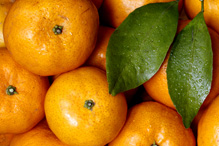The Israel Consumer Council found a gap of up to 151% between the prices that retail chains pay farmers and the prices they charge consumers for fruit. Vegetable prices are also on the rise.
Israeli consumers pay high prices for their fruit and vegetables. A study conducted by the Knesset Research and Information Center in December 2012 indicates that fruit prices in Israel rose by 60% between 2005 and 2011, compared with an average increase of 17% in the EU. Vegetable prices in Israel also rose during the same period by 29% compared with a 20% increase in the EU. Fruit and vegetable prices in 2013 continued to rise…
There is no dispute that fruits and vegetables are an important part of our diet. A special Report published by the State Comptroller (May 2012) pointed to the fact fruit and vegetables are the most important commodity in the basic food basket prepared by the Ministry of Health, a basket that is designed to "fill the minimum need for adequate consumption." It seems there is no dispute about the contribution of fruit and vegetable consumption to public health, on the one hand, and the economic significance of the price to the basket of products purchased by the public, on the other hand.
It seems that the main reason for the high price of fruits and vegetables is the price gap between what the farmer charges for his products, and the price paid by the consumer at the point of sale. For the first time in Israel, a comprehensive field study is being conducted by the Farmers Federation and the Israel Consumer Council that will help shed light on these gaps and quantify them.
Research Method:
Farmers reported, via the Farmers Federation, what they were paid for their produce on 27-29 October. Exactly on the same dates, the Consumer Council Patrol checked fruit and vegetable prices and visited 168 retail chains and greengrocers all over the country. The Consumer Council operates the Consumer Council Patrol that examines 150 points of sale a week and 300 in total and publishes the prices on its website, including the names of the most expensive and the cheapest branches.
This inquiry by the Consumer Council and the Farmers Federation calculates the sales margin - the difference between the retail price and the price the farmer receives.
The inquiry indicates that there are large gaps between what the farmer is paid and the retail price.
For example:
The sales margin of a grapefruit is 151% ‒ the fruit is sold on average for NIS 6.45, while the farmer receives about NIS 2.60 for the fruit.
The sales margin of a avocado is 125% ‒ the fruit is sold on average for NIS 9.00, while the farmer receives about NIS 4.00 for it.
The sales margin of a lemon is 108% ‒ the fruit is sold on average for NIS 8.30, while the farmer receives about NIS 4.00 for it.
The sales margin of oranges is 95% ‒ the fruit is sold on average for NIS 6.70, while the farmer receives about NIS 3.40 for it.
In view of the high sales margins, the Israel Consumer Council and the Farmers Federation are promoting supervision of the price gap.
Dubi (Dov) Amitai, president of the Israel Farmers Association: “Farmers receive very low prices from traders and consumers are paying exorbitant prices. The large chains have us fooled ‒ they tell the whole world that it costs them highly, and yet, when you read their financial statements, you see that even the worst off traders buy for two shekels and selling for seven. Sales margins reach 250% to 300%, while in Europe voluntary agreements of some chains determine that the consumer price will not exceed 40% or 50%. We need regulation here.”
Adv. Ehud Peleg, CEO of the Israel Consumer Council: “The fact that there are gaps of hundreds of percent between different stores and different sectors only exposes the huge market gaps that are not reasonable and therefore not justified.
“In the fruit and vegetables sector there are huge gaps between what the farmer is paid for his produce and what the consumer pays, and these gaps have led the Consumer Council to initiate the supervisory process. The product the consumer buys in the store is the same product the farmer sold on his farm, and therefore it cannot be said that retailers have additional hidden expenses, or transportation and marketing costs. Bumping up the price, sometimes by hundreds of percent compared to the price on the farm, suggests that sales teams in the retail chains have lost all restraint, and there is no refuge in government control over the high prices charged. With such unreasonable prices there is no way there can be a fair market. The situation requires government intervention.
Both consumers and farmers are suffering in the current situation. After implementing the amendment, consumers will benefit by allowing themselves to buy more fruit and vegetables and eat a more healthy diet, and farmers will benefit from greater demand for their produce."

